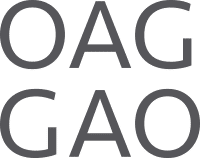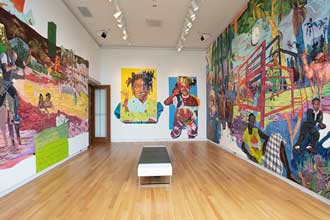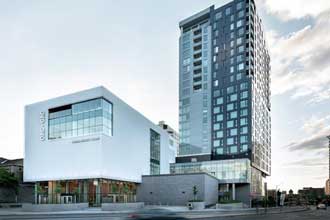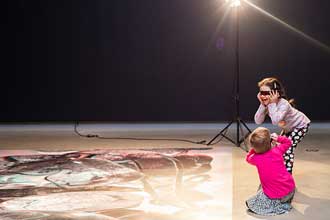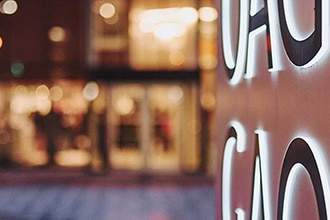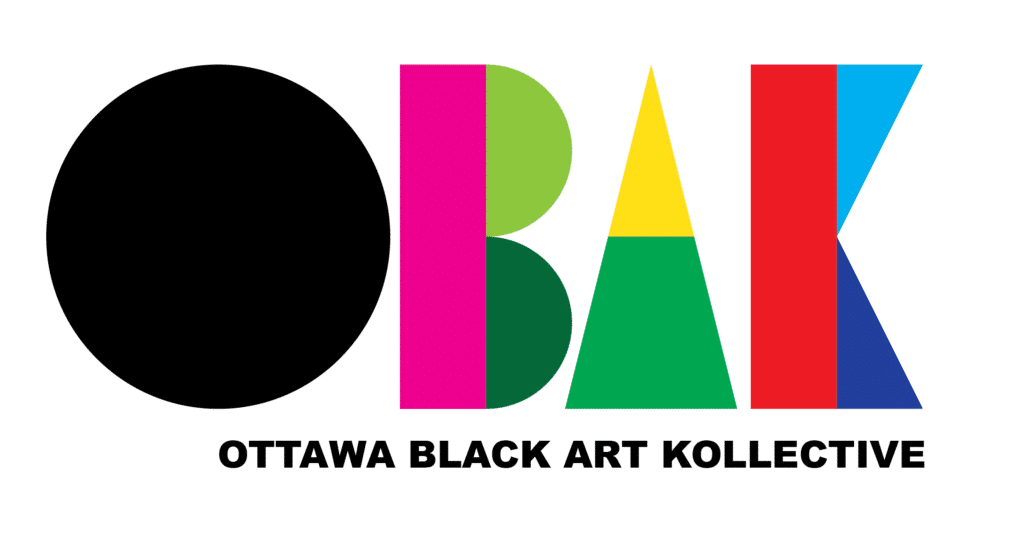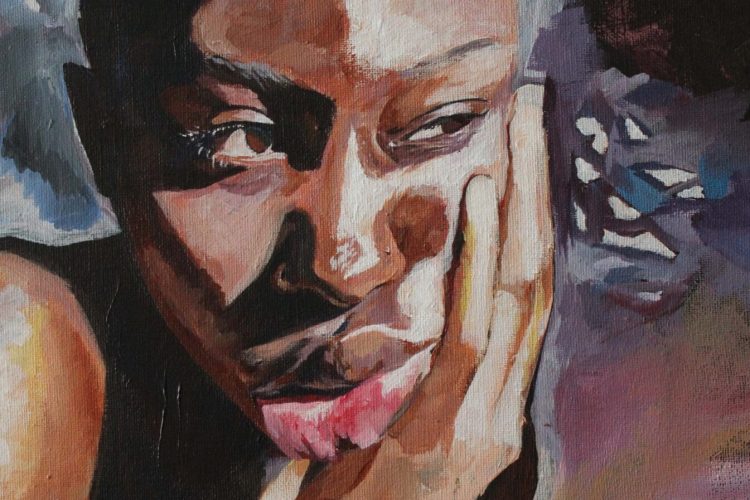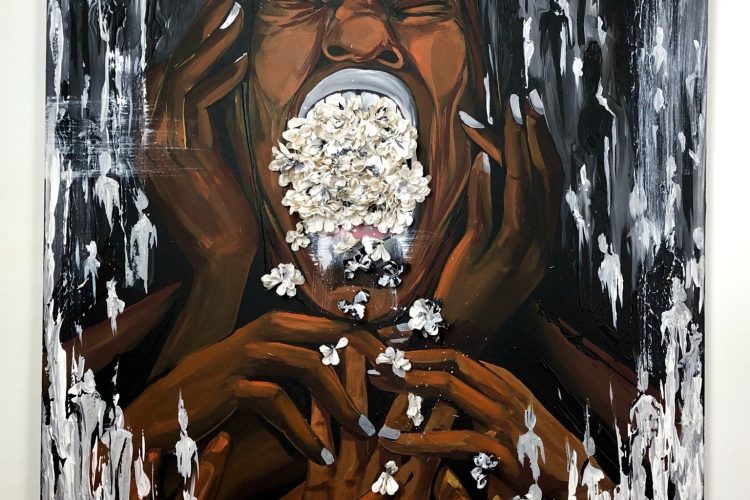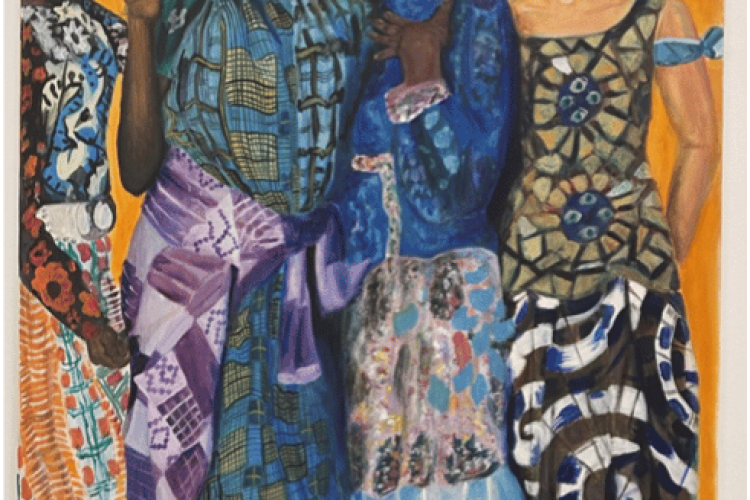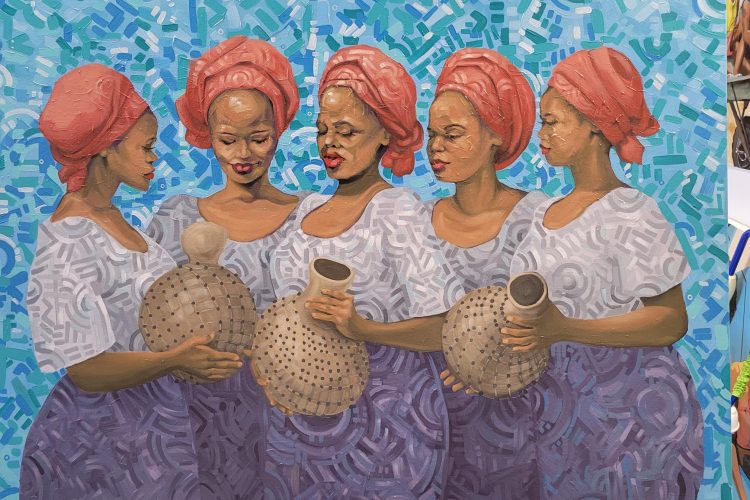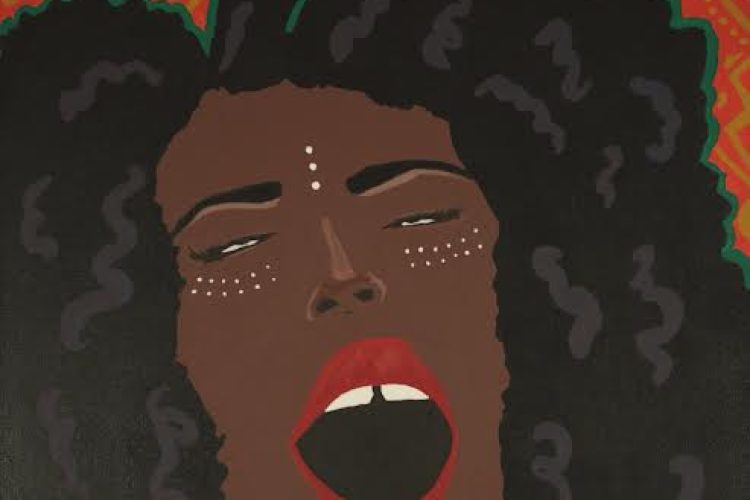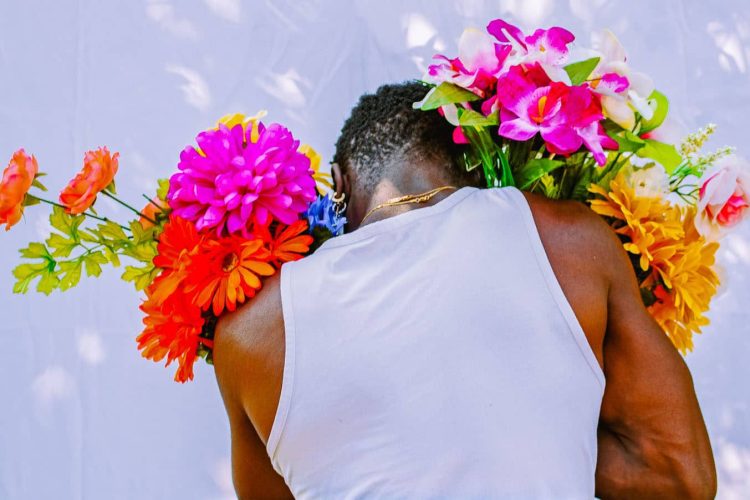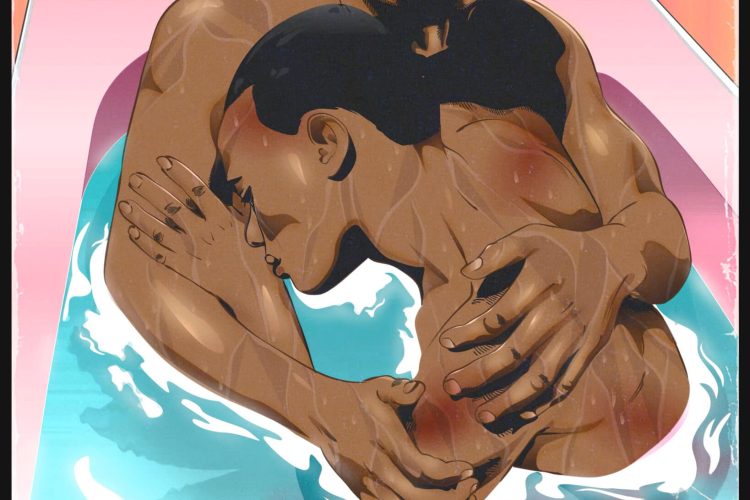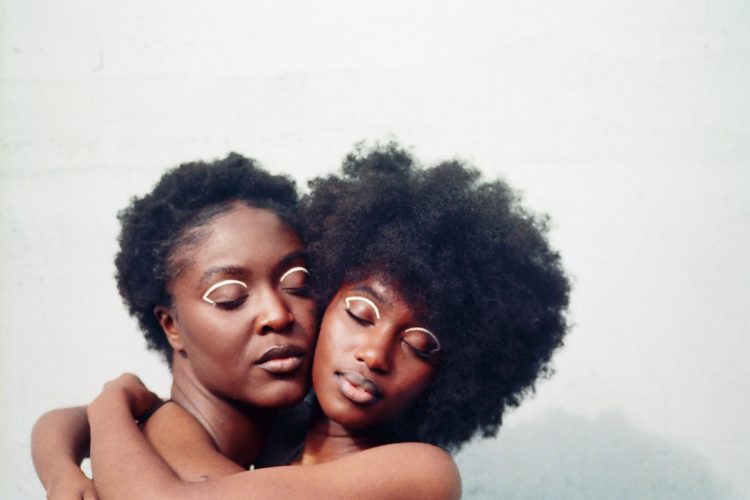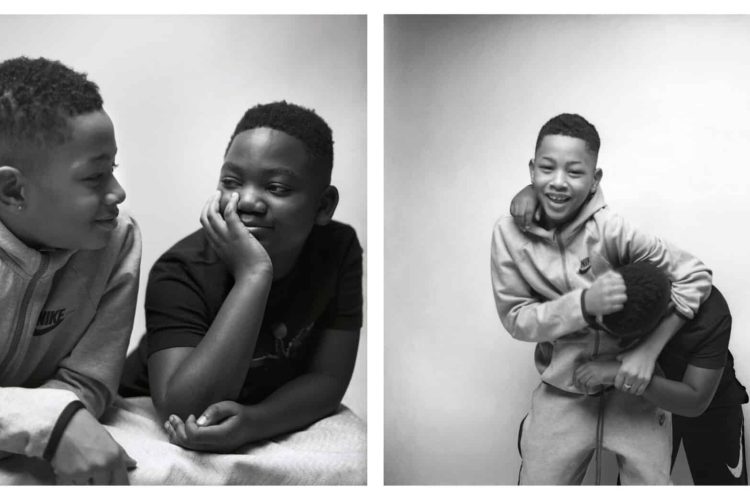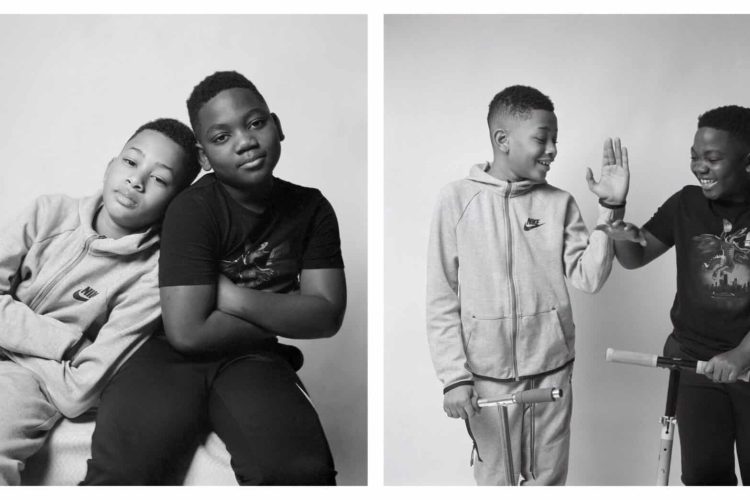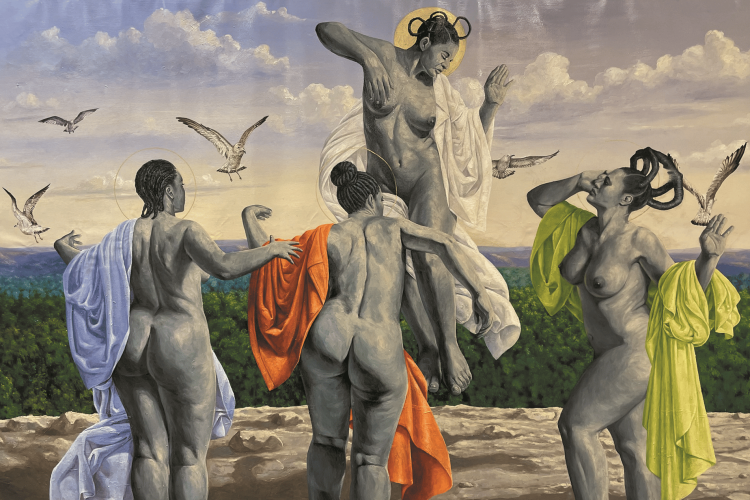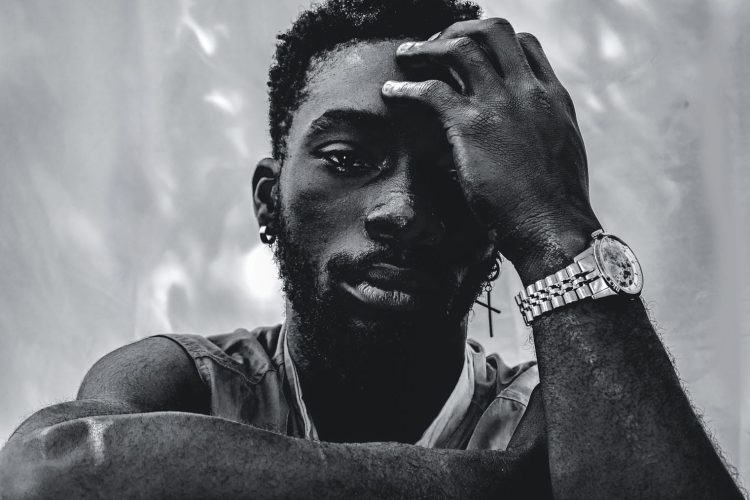How I Love You
Galerie Annexe
July 28, 2022
- September 11, 2022
OAG Commercial Community Guest Curator: Delilah Edouard Williams
Aly McDonald, Andy Akangah, Aurelie Kadjo, Dion Prints, Fanny Constantino, Farah Lorissaint, Fatuma Kou, Felicity Hauwert, Hasina Kamanzi, Heritier M. Bilaka, Jean Christian Ishimwe, Jega Delisca, Jemimah Lorissaint, Jinnia Baiye, Jovita Odegua Akahome, Lola Shadee Badmus, Mesoma Onyeagba, Olivia Marie, Sandra Dusabe, Suleimi Ahmed, Tamar Scott Nnaji, Tolorunlogo (Tolo) Akinrinola, Yomi Orimoloye
The exhibition is organized according to three conceptual pillars: individual and self-love, community-based love and care, and lastly to intergenerational teachings of love. All three pillars grow and interact with one another. In pouring love into ourselves and accepting ourselves whole-heartedly, we then make it possible to better love others like us, and subsequently, in a healthy and exponential manner, we build community links. It follows that the reinforcement of this sense of community then inherently allows for better intergenerational teachings to produce more loving and caring individuals, which brings us again to the beginning of the cycle. Across the exhibit we are able to see pieces that consider not only the fruits of such labors of love, but also what comes at the costs of their absence.
In Hustle, Grind (2022) artist Sandra Dusabe portrays a subject experiencing loneliness and self-hatred as a result of isolation and lack of proper social support systems. The subject uses unhealthy coping mechanisms, like self-loathing, to fill in the void left in love’s absence. In a community where the idea of self-sufficiency and independence are seen as ideals, there is little room for vulnerability, nor for the creation of meaningful relationships built on support and care. Réconciliation (2021) by Aurélie Kadjo shows a portrait of a figure bent over in a scream, yet gagged and silenced by flowers. This depicts an individual unable to share the overwhelming feelings of anguish pent up inside, while forcing themselves to play nice on the outside. These works show that some forms of love and care that Black folks engage with can be critically viewed. They can include destructive patterns disguised as self-care, or care for others that is offered at our own expense, often pushing us to the breaking point. Works like A Funny Conversation (2022) by Mesoma Onyeagba and AsoEbi (2022) by Jovita Odegua Akahome reveal how many Black folks share these same struggles. In communing over these similarities and allowing ourselves to experience vulnerability with each other, we are able to open this door to a kind of instant and never-ending love between one another.
On the opposing end of this self-love spectrum, works like Sexual Awakening (2022) by Lola Shadee Badmus and The Beauty Within (2022) by Tolorunlogo Akinrinola, show Black people exploring and embracing the vulnerable parts of themselves that are frequently denied. Sexual Awakening depicts a Black woman and her enjoyment with her own sexuality; a frequent topic of contention within the Black community due to the history of fetishization and shame surrounding Black female sexuality. The Beauty Within shows a Black man revealing his sensitivity without opposing his masculinity. Rather, his masculinity is actually informed by this sensitive side, allowing for a future vision of this beauty and duality for Black men. These subjects find power in reclaiming these sensitive parts of their identities, and then in turn they can apply their lessons in self-love to external relationships. Having reflected upon the inherent complexities of some depictions of love, we can look to representations of healing and beautiful relationships in pieces like Andy Akangah’s Alone Together (2022), Jinnia Baiye’s Sistren (2022) and Dion Prints’s Do You Remember No. 1 and No. 3 (2022). The bonds here, platonic and romantic alike, are not rarities but are very tangible relationships that require the evaluation of our own methods of care to be realized.
These tender moments of both joy and pain are seen throughout works in the exhibition. Although critical at times, this rethinking of our relationships to ourselves and to others is in fact love in action. Accepting our faults in the ways that we have loved, and actively and continuously considering how we need to love and be loved, will allow for better types of love and care. Love begets more love, as the saying goes, and actively engaging with these concepts will ultimately produce the best types of relationships between ourselves and our community.
This exhibition was realized with the support and partnership of the Ottawa Black Art Kollective (OBAK), and the RBC Foundation’s support of the OAG’s Connect: Artist Mentorship Program.
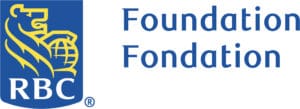
Curator’s Acknowledgements
A big thank you for everyone’s support and work with this exhibit. It really was a community position with great support from OAG’s team as well as Ottawa Black Art Kollective (OBAK) members. Notably, the mentoring I received from Stephanie Germano (Commercial Curator, Ottawa Art Gallery) and mentor Stanley Wany (artist and OBAK member) who were instrumental in aiding me in my curatorial pursuits, and enriching my Black cultural perspectives respectively. Finally and most importantly, we must highlight all the amazing submissions and talent from the artists in this show, many of whom are young and emerging artists. The great level of engagement and submissions reaffirms the want and need for opportunity for Black artists and creatives within the City of Ottawa. We need only continue in allowing for space or creating it for their flourishment.
Photo: Tolorunlogo Akinrinola, Understanding, 2021, 16x20” Digital photograph
